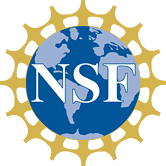The mission of the SenSIP Industry Consortium is to perform use-inspired research and train students in sensor and information systems, digital signal and image processing, wireless communications, networks, and multimedia.
Applications addressed include information processing, software systems, integrated sensing, biomedicine and genomics, defense and homeland security, sustainability and environmental technologies, speech/audio processing and telephony, imaging and video systems, low power realizations, real-time implementations, smart stages and interactive media, and vehicular sensing.
SenSIP Consortium Membership Chart
Download SenSIP Consortium brochure
Director
Andreas Spanias
Industry Advisory Board (IAB):
- Martin Woolf, Raytheon (chair) – Radar Systems (2 memberships)
- Mike Stanley , Freescale – Sensor Fusion and DSP
- Kim Chase, Sprint Communications – Mobile Communications
- Devarajan Srinivasan,, ViaSOL, Poundra – Solar Panel Monitoring
- Murat Ocksay, Interactive Flow (IFS) – Imaging Sensors for Blood Flow
- Farshad Akhbari , Intel – Gesture Estimation
- Shin Takada, ACT – Sensors for Solar Panel Monitoring
- Shinji Koinzumi, Energy Wireless – Wireless Networks for Energy Systems
SenSIP Members at Large (non voting):
- George Wolberg (Brainstorm Technologies)
- Chung-Fu Chang (Lockheed Martin)
- Brian Mears (Intel)
- Debbie Vogel (Sprint)
- Byung K. Yi (LG Communications)
The SenSIP industry consortium is now approved as an NSF funded Industry University Collaborative Research Center (I/UCRC) site. SenSIP wlll work with the Net Centric I/UCRC of Texas with the University of North Texas, University of Texas-Dallas and Southern Methodist University.
Synopsis
The objective of the NSF Sensor Signal and Information Processing (SenSIP) Industry Consortium is to develop a research and education partnership with local and national industry. This partnership will focus on the development of new signal/information processing algorithms, tools, and software for integrated sensor systems. The primary objective will be the development of new methods for extracting, parameterizing , transmitting, and classifying information from heterogeneous sensors and sensor networks.The faculty involved in SenSIP have a track record of funded programs in areas associated with the theoretical aspects of the SenSIP mission and are actively establishing industry collaborations that promote cutting-edge application-driven research in these areas. The SenSIP Industry Consortium has recently become a site of the NSF Net Centric Industry University Collaborative Research Center (I/UCRC) and will work closely with the University of North Texas, SMU, and the University of Texas at Dallas. The theme of the center aligns well with the economic security of the two states involved and of the nation in general. The creation of intellectual property and trained workforce from this program will contribute to several important state initiatives including biomedical, sustainability, defense, and border control. Some specific application-driven problems to be examined include
- detection and tracking algorithms for sensors
- source localization with microphone arrays
- motion detection with camera array sensors
- algorithms for waveform design for radar and sonar sensors
- sensor information processing for intrusion and border security
- signal processing for biological and chemical sensors
- information and decision networks for sensor arrays
- acoustic scene characterization
Presentations by the consortium director, Dr. Andreas Spanias and his colleagues and students
- SenSIP status and collaboratve efforts within ASU, ASU University Club May 19, 2011
- SenSIP Collaboration with UCY-KIOS, ETH, Polytechnic Milano, at the University of Cyprus, April 2011.
- SenSIP partnership with Sprint; A WiMax/4G research effort, , At Net Centric NSF I/UCRC, Dallas, April 8, 2011
- SenSIP LG and Lockheed research proposals and progress on the I/UCRC, At Net Centric NSF I/UCRC, Dallas, April 7, 2011
- Presentation At Net Centric NSF I/UCRC, “SenSIP I/UCRC projects and status, Dallas, DFW Great Wolfe Lodge, October 21, 2010
- SenSIP education efforts, “JDSP for signals and systems and DSP courses,” Presentation At University of Cyprus, Computer Science, Nicosia, July 16, 2010
- 3rd Cyprus Workshop on Signal Processing and Informatics, “SenSIP research on PV; Signal Processing for Monitoring and Control of PV arrays,” Nicosia, Cyprus, July 15, 2010
- SenSIP Short course; Adaptive Filtering Primer, ASU University Club, June 18, 2010
- Presentation at Qualcomm, Wireless Communications Research, San Diego, June 8, 2010
- Presentation at LG Communications, Sensor Network Research, San Diego, June 8, 2010
- SenSIP Open House and NSF IUCRC. Proposal for SenSIP NSF IUCRC center, ASU Old Main Feb 19, 2010
- Microsoft Research, December 2007 (A. Spanias and V. Berisha)
 Sponsored in part by NSF I/UCRC Awards 0934418 and 1035086. NSF Phase 2 I/UCRC Award 1540040.
Sponsored in part by NSF I/UCRC Awards 0934418 and 1035086. NSF Phase 2 I/UCRC Award 1540040.


